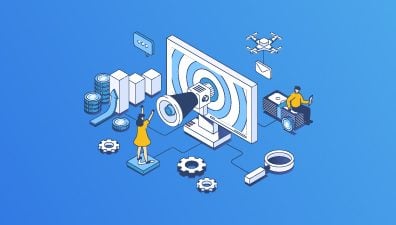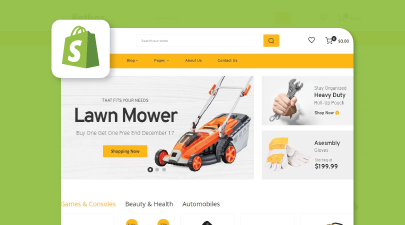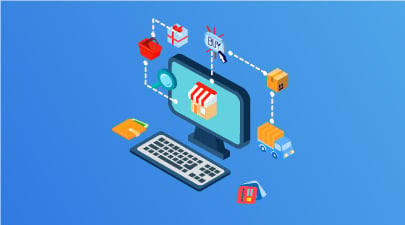Omnichannel retail refers to the seamless integration and synchronization of various sales channels, both online and offline, to provide customers with a unified shopping experience. The importance of omnichannel retail solutions cannot be overstated in today’s digital age. With the proliferation of online shopping, mobile devices, and social media platforms, consumers now expect a seamless and personalized shopping experience across all touchpoints. By implementing omnichannel retail solutions, businesses can not only meet but exceed these expectations, driving customer satisfaction, loyalty, and ultimately, revenue growth.
The retail landscape has undergone significant transformations in recent years. Traditional brick-and-mortar stores are no longer the sole domain of retail operations. Instead, retailers must navigate a complex ecosystem that encompasses physical stores, eCommerce websites, mobile apps, social media platforms, and more. Understanding this evolving landscape and leveraging omnichannel retail solutions is crucial for businesses to stay competitive and relevant in today’s market.
Table of Contents
- Understanding Omnichannel Retail
- What are some of the best Omnichannel Retail Solutions
- Key features of Omnichannel Retail Solutions
- Benefits of Omnichannel Retail for Businesses
- Challenges in Implementing Omnichannel Retail Solutions
- Implementing Omnichannel Retail Solutions: Best Practices
- Future Trends in Omnichannel Retail Solutions
Understanding Omnichannel Retail
In the fast-paced world of retail, understanding the concept of omnichannel retail solutions is paramount. It’s not merely a buzzword; it’s a strategic approach that can make or break a retailer’s success in today’s competitive landscape. To truly grasp the essence of omnichannel retail solutions, it’s essential to delve into its key components, which include online channels, physical stores, mobile channels, and social media channels.
Key Components of Omnichannel Retail
Understanding the key components of omnichannel retail solutions is essential for retailers looking to thrive in today’s omnichannel landscape. By harnessing the power of online channels, physical stores, mobile channels, and social media channels, retailers can create seamless shopping experiences that delight customers and drive business growth.

In the next sections of this blog post, we will explore how retailers can leverage these components to build effective omnichannel strategies and achieve success in the digital age.
Online Channels
Online channels serve as the cornerstone of omnichannel retail solutions. These encompass eCommerce websites, mobile apps, and other digital platforms where customers can browse, shop, and interact with a brand. With the rise of eCommerce giants like Amazon and Alibaba, online channels have become indispensable for retailers of all sizes.
- eCommerce Websites: these are the virtual storefronts where customers can explore products, make purchases, and engage with brands from the comfort of their homes. These websites should offer intuitive navigation, secure payment gateways, and seamless checkout experiences to ensure a frictionless shopping journey for customers.
- Mobile Apps: Mobile apps have revolutionized the way consumers shop, allowing them to access products and services on the go. Retailers can leverage mobile apps to send personalized notifications, offer exclusive discounts, and facilitate one-click purchases, thereby enhancing customer engagement and loyalty.
Physical Stores
Despite the rise of online shopping, physical stores remain an integral part of the omnichannel retail landscape. These brick-and-mortar establishments provide customers with tactile experiences, human interactions, and instant gratification that cannot be replicated online.
- In-Store Experiences: Physical stores offer unique opportunities for retailers to engage with customers through immersive experiences, interactive displays, and personalized services. By integrating digital technologies such as interactive kiosks, augmented reality (AR), and virtual reality (VR), retailers can bridge the gap between online and offline shopping experiences.
- Click-and-Collect: Click-and-collect, also known as buy online, pick up in-store (BOPIS), enables customers to shop online and collect their purchases from a nearby store at their convenience. This hybrid shopping model combines the convenience of online shopping with the immediacy of in-store pickup, catering to customers’ preferences for speed and flexibility.
Mobile channels
In an increasingly mobile-centric world, mobile channels play a crucial role in omnichannel retail solutions. These include mobile optimization for every touchpoint, intuitive mobile apps, and tailored SMS marketing strategies designed to engage customers on their smartphones and tablets.
- Mobile-Optimization for every touchpoint: With a growing number of consumers using smartphones to browse and shop online, retailers must ensure that every touchpoint is optimized for mobile devices. This means every touchpoint should feature responsive design, fast loading times, and intuitive navigation for mobile platforms to deliver a seamless browsing experience across all screen sizes.
- SMS Marketing: SMS marketing is a powerful tool for reaching customers directly on their mobile devices and driving engagement through personalized messages, promotions, and reminders. By leveraging SMS marketing automation platforms, retailers can send targeted messages based on customer preferences, behavior, and location, thereby enhancing the effectiveness of their omnichannel marketing campaigns.
Social Media Channels
Social media channels have emerged as essential platforms for retailers to connect with customers, build brand awareness, and drive sales. From Facebook and Instagram to TikTok and Snapchat, social media channels offer unparalleled opportunities for retailers to engage with their target audience in real-time.
- Social Commerce: Social commerce involves selling products directly through social media platforms, thereby streamlining the path to purchase for consumers. Retailers can leverage features such as shoppable posts, live streaming, and influencer partnerships to showcase products, collect customer feedback, and drive conversions on social media channels.
- Customer Engagement: Social media channels provide retailers with valuable insights into customer preferences, opinions, and behaviors. By actively listening to feedback, responding to inquiries, and fostering meaningful conversations, retailers can build stronger relationships with their audience and cultivate brand advocates in the digital sphere.
What are some of the best Omnichannel Retail Solutions
There are several omnichannel retail solutions available in the market, each offering a range of features and functionalities to help businesses manage their operations seamlessly across multiple channels. Here, we will provide a few examples of the best omnichannel retail solutions available in the market. Each solution has its unique features and benefits, so businesses should evaluate their specific needs and requirements before choosing the right platform for their omnichannel strategy. Behold for some of the best omnichannel retail solutions.
Shopify
In the dynamic world of retail, where consumers expect seamless experiences across multiple channels, choosing the right omnichannel retail solution is paramount for success. Among the plethora of options available, Shopify stands out as one of the leading platforms, offering a comprehensive suite of tools and features designed to empower retailers to thrive in the omnichannel landscape.

Shopify offers retailers a comprehensive omnichannel solution that allows them to manage their online store, physical retail locations, and social media sales all from one centralized platform. This integrated approach enables businesses to streamline their operations, synchronize inventory, and provide a consistent shopping experience to customers across all channels. Here are some keys features and capabilities of Shopify:
- Inventory Management: Shopify’s robust inventory management features empower retailers to track and manage their product inventory seamlessly. With real-time updates and synchronization across channels, businesses can ensure accurate stock levels and avoid overselling or stockouts.
- Order Fulfillment: Shopify simplifies the order fulfillment process by providing tools to manage orders efficiently. From order processing to shipping and delivery, businesses can streamline their fulfillment operations and provide customers with timely and reliable service.
- POS Integration: One of Shopify’s standout features is its seamless integration with point-of-sale (POS) systems. This allows retailers to unify their online and offline operations, enabling in-store transactions, inventory management, and customer data synchronization.
- Multi-channel Selling: Shopify enables businesses to expand their reach and sell across multiple channels, including their online store, social media platforms, and online marketplaces. With built-in integrations and customizable storefronts, retailers can reach customers wherever they are and drive sales across channels.
- Customizable Themes: Shopify offers a wide range of customizable themes and templates, allowing retailers to create a unique and branded online storefront. With easy-to-use design tools and flexible customization options, businesses can create visually stunning websites that reflect their brand identity and engage customers effectively.
- Marketing Tools: Shopify provides a suite of marketing tools and features to help businesses attract, engage, and retain customers. From email marketing and social media advertising to SEO optimization and abandoned cart recovery, retailers can leverage Shopify’s marketing capabilities to drive traffic, boost conversions, and increase sales.
- Analytics and Insights: Shopify offers robust analytics and reporting tools that provide retailers with valuable insights into their business performance. From sales trends and customer behavior to inventory turnover and marketing ROI, businesses can gain actionable insights to optimize their operations and make data-driven decisions.
With Shopify’s omnichannel retail solution, retailers can optimize sales across channels by leveraging its powerful features and capabilities. By providing a seamless shopping experience, synchronizing inventory, and leveraging data-driven insights, businesses can drive engagement, increase conversions, and maximize revenue across their online and offline channels.
In conclusion, Shopify stands out as one of the best omnichannel retail solutions available, offering retailers a comprehensive suite of tools and features to manage their operations, drive sales, and provide a seamless shopping experience to customers across all channels. With its integrated approach, customizable themes, robust inventory management, and powerful marketing tools, Shopify empowers retailers to thrive in the omnichannel landscape and unlock new opportunities for growth and success.
Magento
In the rapidly evolving world of retail, businesses are increasingly recognizing the importance of omnichannel retail solutions to meet the diverse needs and expectations of today’s consumers. Among the array of options available, Magento stands out as a leading choice for retailers seeking a robust and flexible platform to power their omnichannel operations.

Magento is renowned for its flexibility and scalability, making it an ideal choice for businesses of all sizes and industries. Whether you’re a small startup or a large enterprise, Magento can be tailored to suit your specific needs and grow with your business. Its open-source nature allows for extensive customization and integration with third-party systems, enabling businesses to create unique and personalized omnichannel experiences for their customers.
Magento offers a comprehensive set of omnichannel features designed to help retailers seamlessly manage their operations across multiple channels. Some key features include:
- Multi-Store Management: Magento allows retailers to operate multiple online stores from a single dashboard, making it easier to manage products, orders, and customers across different brands, regions, or languages.
- Mobile Responsiveness: With the increasing prevalence of mobile shopping, Magento ensures that your online store is fully responsive and optimized for mobile devices. This allows customers to browse, shop, and complete transactions on any device, enhancing the overall shopping experience.
- Integration with POS Systems: Magento integrates seamlessly with various point-of-sale (POS) systems, enabling retailers to unify their online and offline operations. This integration allows for real-time inventory updates, synchronized customer data, and streamlined order management across all sales channels.
Magento provides businesses with advanced customization options to create tailored omnichannel solutions that meet their unique requirements. From customizing the look and feel of your online store to developing custom functionalities and integrations, Magento offers unparalleled flexibility and control over your eCommerce platform. Additionally, Magento’s extensive marketplace of extensions and plugins allows businesses to enhance their omnichannel capabilities further and add new features as needed.
Magento boasts a vibrant community of developers, designers, and eCommerce experts who contribute to its ongoing development and support. Whether you’re looking for technical assistance, seeking advice on best practices, or exploring new ideas for your omnichannel strategy, the Magento community provides a wealth of resources and knowledge to help you succeed. Additionally, Magento offers various support options, including documentation, forums, and professional services, to ensure that businesses receive the assistance they need to maximize the potential of their omnichannel retail solution.
In conclusion, Magento stands out as one of the best omnichannel retail solutions available, offering businesses the flexibility, scalability, and functionality they need to succeed in today’s competitive retail landscape. With its extensive range of features, advanced customization options, and robust community support, Magento empowers retailers to create seamless and personalized omnichannel experiences that drive engagement, loyalty, and revenue. Whether you’re a small startup or a global enterprise, Magento provides the tools and resources you need to thrive in the omnichannel era and deliver exceptional value to your customers.
BigCommerce
In the ever-evolving landscape of retail, where consumers demand seamless shopping experiences across various channels, choosing the right omnichannel retail solution is paramount for success. BigCommerce emerges as a top contender in this arena, offering a comprehensive eCommerce platform with robust omnichannel capabilities designed to empower retailers to thrive in today’s competitive market.

BigCommerce provides retailers with an all-in-one eCommerce platform that encompasses everything they need to launch, manage, and grow their online business. From customizable storefronts and secure payment processing to powerful marketing tools and analytics, BigCommerce offers a comprehensive solution to meet the diverse needs of retailers of all sizes.
One of BigCommerce’s standout features is its seamless integration with leading marketplaces such as Amazon and eBay, as well as popular social media platforms like Facebook and Instagram. This integration enables retailers to expand their reach and sell their products across multiple channels, reaching customers wherever they are and driving sales through diverse channels.
BigCommerce is equipped with robust omnichannel capabilities designed to streamline operations and provide a seamless shopping experience to customers across all channels. Key features include:
- Inventory Synchronization: BigCommerce enables retailers to synchronize their inventory across all sales channels, ensuring accurate stock levels and preventing overselling or stockouts. With real-time inventory updates, businesses can optimize their inventory management and fulfill orders efficiently.
- Order Management: BigCommerce simplifies the order management process by providing tools to manage orders from multiple channels in one centralized dashboard. From order processing to fulfillment and shipping, businesses can streamline their operations and provide customers with timely and reliable service.
- Built-in Shipping Solutions: BigCommerce offers built-in shipping solutions that enable retailers to manage shipping rates, print shipping labels, and track shipments directly from the platform. With integrations with leading shipping carriers, businesses can offer flexible shipping options and provide customers with a seamless post-purchase experience.
BigCommerce offers a wide range of customizable templates and themes that enable retailers to create unique and branded storefronts that reflect their brand identity. With easy-to-use design tools and flexible customization options, businesses can create visually stunning websites that engage customers and drive conversions.
BigCommerce provides retailers with a suite of marketing tools and analytics that enable them to attract, engage, and retain customers across all channels. From email marketing and social media advertising to SEO optimization and abandoned cart recovery, businesses can leverage BigCommerce’s marketing capabilities to drive traffic, boost conversions, and increase sales. Additionally, BigCommerce offers robust analytics and reporting tools that provide valuable insights into business performance, enabling retailers to make data-driven decisions and optimize their operations for maximum efficiency and profitability.
In conclusion, BigCommerce emerges as one of the best omnichannel retail solutions available, offering retailers a comprehensive eCommerce platform with robust omnichannel capabilities designed to streamline operations, drive sales, and provide a seamless shopping experience to customers across all channels. With its seamless integration with leading marketplaces and social media platforms, robust inventory management and order fulfillment capabilities, customizable storefronts, and powerful marketing tools and analytics, BigCommerce empowers retailers to thrive in today’s omnichannel landscape and unlock new opportunities for growth and success.
Salesforce Commerce Cloud
In today’s competitive retail landscape, delivering seamless and personalized experiences across multiple channels is essential for success. As businesses strive to meet the evolving expectations of consumers, investing in the right omnichannel retail solution becomes crucial. Among the leading options available, Salesforce Commerce Cloud stands out for its robust features, scalability, and integration capabilities.
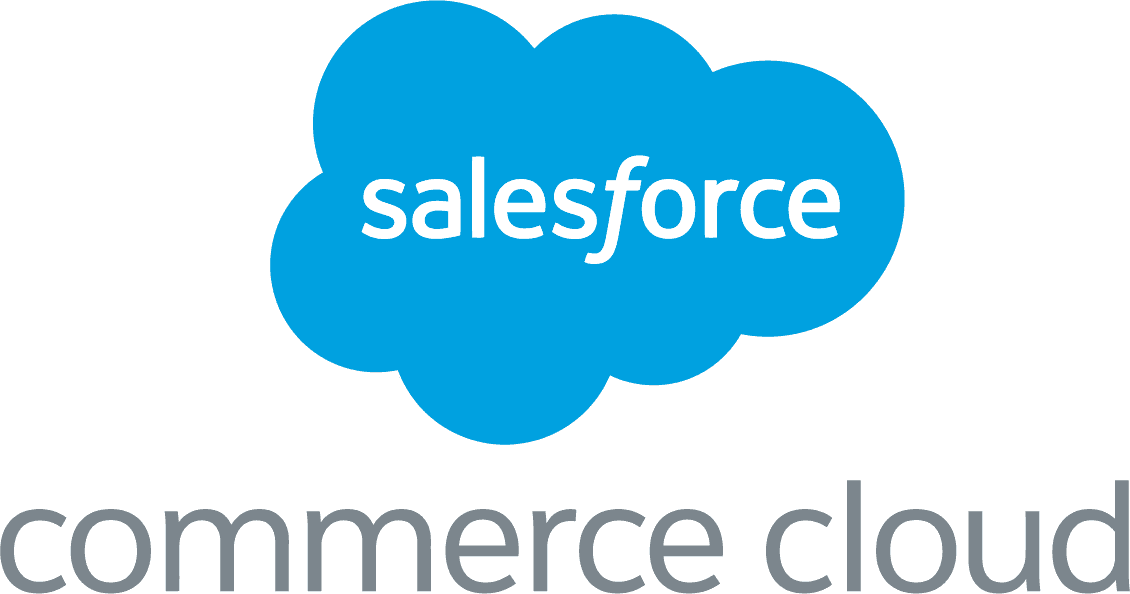
Salesforce Commerce Cloud offers a cloud-based eCommerce platform that provides businesses with the flexibility and scalability they need to succeed in the omnichannel landscape. By leveraging the power of the cloud, retailers can easily manage their online storefronts, streamline operations, and adapt to changing market conditions without the need for extensive infrastructure or IT resources.
Salesforce Commerce Cloud is equipped with built-in omnichannel capabilities designed to deliver seamless experiences across all touchpoints. Some key features include:
- Unified Customer Profiles: Salesforce Commerce Cloud allows retailers to create unified customer profiles that capture data from every interaction across channels. This holistic view enables businesses to understand customer behavior, preferences, and purchase history, allowing for personalized and targeted marketing campaigns.
- Personalized Marketing: With Salesforce Commerce Cloud, retailers can leverage data-driven insights to create personalized marketing campaigns that resonate with individual customers. From personalized product recommendations to targeted promotions and offers, businesses can deliver relevant content to customers at every stage of their journey.
- AI-Powered Recommendations: Salesforce Commerce Cloud utilizes artificial intelligence (AI) and machine learning algorithms to deliver intelligent product recommendations based on customer preferences, browsing history, and purchase behavior. By providing personalized recommendations, businesses can increase engagement, conversions, and customer satisfaction.
One of the standout features of Salesforce Commerce Cloud is its seamless integration with other Salesforce products, including Salesforce CRM and Marketing Cloud. This integration enables businesses to create a unified customer experience across sales, marketing, and service channels. By synchronizing customer data, insights, and workflows, businesses can deliver consistent messaging, personalized interactions, and seamless transitions between channels.
Salesforce Commerce Cloud offers scalability and flexibility to support businesses of all sizes and industries. Whether you’re a small startup or a global enterprise, Salesforce Commerce Cloud can be tailored to meet your specific needs and scale with your business as it grows. With customizable features, flexible pricing options, and extensive partner ecosystem, businesses can create tailored omnichannel solutions that drive growth and success.
In conclusion, Salesforce Commerce Cloud emerges as one of the best omnichannel retail solutions available, offering businesses a cloud-based eCommerce platform with built-in omnichannel capabilities, personalized marketing, AI-powered recommendations, and seamless integration with other Salesforce products. With its scalability, flexibility, and comprehensive feature set, Salesforce Commerce Cloud empowers businesses to deliver exceptional customer experiences, drive engagement, and achieve success in the digital age. Whether you’re looking to streamline operations, increase sales, or build customer loyalty, Salesforce Commerce Cloud provides the tools and resources you need to thrive in the omnichannel era.
Lightspeed Retail
In the dynamic world of retail, where consumers demand seamless experiences across various channels, choosing the right omnichannel retail solution is imperative for success. Among the top contenders in this space, Lightspeed Retail shines as a comprehensive retail management platform designed to empower brick-and-mortar stores with omnichannel capabilities.

Lightspeed Retail is specifically designed to cater to the needs of brick-and-mortar stores, providing them with the tools and capabilities they need to succeed in the omnichannel landscape. Whether you operate a single storefront or a chain of retail locations, Lightspeed Retail offers solutions tailored to your unique requirements, allowing you to streamline operations, enhance customer experiences, and drive growth.
At the core of Lightspeed Retail is its comprehensive point-of-sale (POS) solutions, which serve as the backbone of omnichannel operations. These POS solutions are equipped with a range of features, including:
- Inventory Management: Lightspeed Retail enables retailers to manage their inventory seamlessly, allowing them to track stock levels, receive alerts for low inventory, and synchronize inventory across multiple channels in real-time. By ensuring accurate and up-to-date inventory information, businesses can avoid stockouts and optimize their supply chain operations.
- Customer Relationship Management: Lightspeed Retail provides built-in CRM capabilities that allow retailers to capture customer information, track purchase history, and create customer profiles. By understanding customer preferences and behavior, businesses can deliver personalized experiences, build loyalty, and drive repeat sales.
- eCommerce Integration: Lightspeed Retail seamlessly integrates with eCommerce platforms, allowing retailers to extend their reach beyond brick-and-mortar stores and sell their products online. With synchronized inventory, centralized order management, and unified customer profiles, businesses can deliver a seamless shopping experience to customers across all channels.
Lightspeed Retail offers robust analytics and reporting tools that enable retailers to gain valuable insights into their sales performance, customer behavior, and inventory trends. By analyzing data across channels, businesses can identify opportunities for growth, optimize pricing and promotions, and make data-driven decisions to drive profitability. With customizable dashboards, real-time reporting, and advanced analytics capabilities, Lightspeed Retail empowers retailers to track key metrics and measure the success of their omnichannel initiatives.
In conclusion, Lightspeed Retail emerges as one of the best omnichannel retail solutions available, offering brick-and-mortar stores a comprehensive retail management platform with integrated POS solutions, inventory management, customer relationship management, and eCommerce integration. With its tailored solutions, robust feature set, and powerful analytics tools, Lightspeed Retail enables businesses to streamline operations, enhance customer experiences, and drive growth in today’s omnichannel landscape. Whether you’re a small boutique or a large retail chain, Lightspeed Retail provides the tools and capabilities you need to succeed in the ever-evolving world of retail.
Omnico Commerce
In today’s fast-paced retail environment, delivering seamless and personalized experiences across multiple channels is imperative for success. Omnichannel retail solutions have emerged as a key enabler for businesses seeking to meet the evolving needs and expectations of modern consumers. Among the leading omnichannel solutions, Omnico Commerce stands out as a comprehensive platform tailored for retail and hospitality businesses.

Omnico Commerce offers a comprehensive omnichannel platform designed to meet the diverse needs of retail and hospitality businesses. Whether you operate a retail store, restaurant, hotel, or entertainment venue, Omnico Commerce provides the tools and capabilities you need to deliver exceptional customer experiences across all touchpoints.
- Unified Commerce: Omnico Commerce enables businesses to unify their online and offline channels, providing customers with a seamless shopping experience across all touchpoints. From browsing products online to making purchases in-store, customers can enjoy a consistent and personalized experience at every step of their journey.
- Loyalty Programs: Omnico Commerce offers robust loyalty program features that allow businesses to reward and incentivize repeat purchases. From points-based rewards to personalized offers and promotions, businesses can build loyalty and drive customer engagement across all channels.
- Mobile Ordering: With mobile ordering capabilities, Omnico Commerce enables businesses to offer convenient ordering options to customers via mobile devices. Whether it’s ordering food at a restaurant, purchasing tickets for an event, or booking a hotel room, customers can place orders anytime, anywhere, enhancing convenience and accessibility.
- Self-Service Kiosks: Omnico Commerce provides self-service kiosks that empower customers to browse products, place orders, and make payments independently. These self-service kiosks reduce wait times, improve efficiency, and enhance the overall customer experience, particularly in high-traffic environments such as retail stores and entertainment venues.
- Integration with Existing Systems: Omnico Commerce seamlessly integrates with existing systems and infrastructure, allowing businesses to leverage their investments in technology and maximize efficiency. Whether it’s POS systems, inventory management software, or payment gateways, Omnico Commerce provides flexible integration options to ensure smooth operations.
- Support for Emerging Technologies: Omnico Commerce stays ahead of the curve by supporting emerging technologies such as mobile wallets and contactless payments. By embracing these technologies, businesses can offer customers innovative payment options, enhance security, and stay competitive in a rapidly evolving market.
Omnico Commerce offers customization and scalability to meet the unique needs of businesses of all sizes and industries. Whether you’re a small boutique or a multinational chain, Omnico Commerce can be tailored to suit your specific requirements and scale with your business as it grows. With flexible deployment options, modular architecture, and extensive customization capabilities, businesses can create tailored omnichannel solutions that drive growth and success.
In conclusion, Omnico Commerce emerges as one of the best omnichannel retail solutions available, offering businesses in the retail and hospitality sectors a comprehensive platform with unified commerce, loyalty programs, mobile ordering, self-service kiosks, integration with existing systems, and support for emerging technologies. With its robust feature set, customization options, and scalability, Omnico Commerce empowers businesses to deliver exceptional customer experiences, drive engagement, and achieve success in the digital age. Whether you’re looking to streamline operations, increase revenue, or enhance customer loyalty, Omnico Commerce provides the tools and capabilities you need to thrive in today’s omnichannel landscape.
Key features of Omnichannel Retail Solutions
In the dynamic and ever-evolving landscape of retail, businesses are constantly seeking innovative solutions to stay ahead of the curve and meet the evolving needs and expectations of consumers. Omnichannel retail solutions have emerged as a powerful tool to help businesses seamlessly integrate their various sales channels and provide customers with a unified shopping experience. Let’s explore some of the key features of omnichannel retail solutions.
Unified Commerce Platforms
Unified commerce platforms serve as the backbone of omnichannel retail solutions, providing businesses with the tools and capabilities to manage their operations seamlessly across multiple channels.
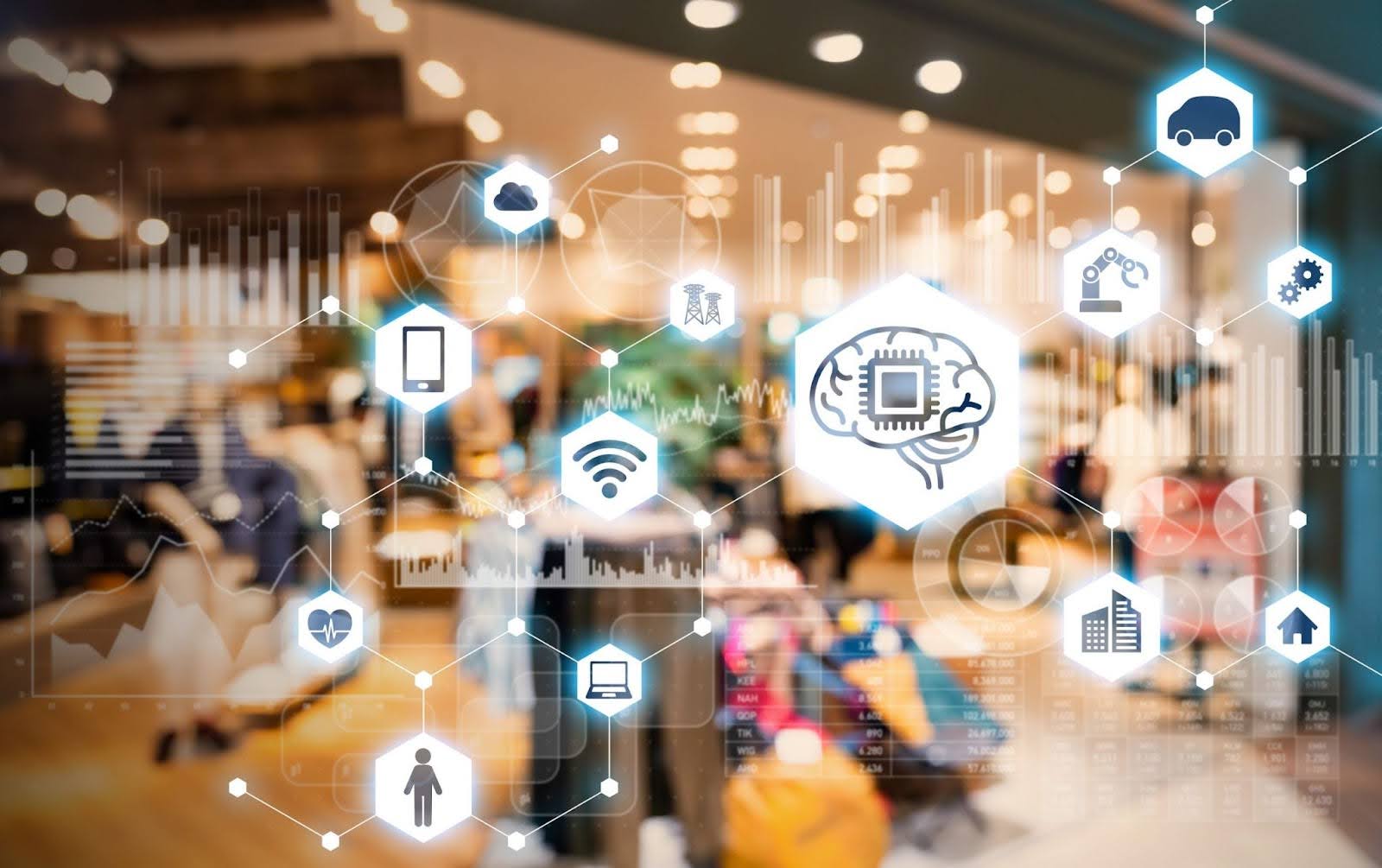
These platforms consolidate data, streamline processes, and enable businesses to deliver consistent and personalized experiences to customers regardless of how they choose to engage with the brand.
Importance in Omnichannel Retail
Unified commerce platforms play a crucial role in omnichannel retail by breaking down silos between different channels and creating a single, cohesive view of the customer journey. By integrating data from online and offline touchpoints, these platforms enable businesses to gain a comprehensive understanding of customer behavior, preferences, and purchase history. This holistic view empowers businesses to deliver relevant product recommendations, personalized promotions, and tailored experiences that resonate with individual customers, driving engagement and loyalty.
Features and Functions
- Centralized Data Management: Unified commerce platforms consolidate customer data, inventory information, and transactional data into a centralized database, providing businesses with a single source of truth. This enables real-time visibility into inventory levels, order statuses, and customer interactions across all channels, facilitating efficient decision-making and resource allocation.
- Omnichannel Order Management: Unified commerce platforms enable businesses to fulfill orders seamlessly across multiple channels, including online, in-store, and mobile. By providing a unified view of inventory availability and order statuses, these platforms ensure that customers can purchase products through their preferred channel and receive them through their preferred fulfillment method, whether it’s shipping, in-store pickup, or curbside delivery.
- Integrated Customer Engagement: Unified commerce platforms facilitate personalized customer engagement by integrating marketing automation tools, CRM systems, and loyalty programs. By leveraging customer data and predictive analytics, businesses can deliver targeted marketing campaigns, personalized promotions, and loyalty rewards that resonate with individual customers, driving engagement and repeat purchases.
- Flexible Payment and Checkout Options: Unified commerce platforms support a variety of payment methods and checkout options to accommodate diverse customer preferences and needs. Whether it’s traditional credit card payments, digital wallets, or buy-now-pay-later options, these platforms ensure a seamless and secure checkout experience across all channels, reducing friction and cart abandonment rates.
Some Unified Commerce Platforms to Take Into Account
Unified commerce platforms are essential components of omnichannel retail solutions, providing businesses with the tools and capabilities to deliver seamless and personalized shopping experiences across all channels. By integrating data, streamlining processes, and enabling personalized engagement, these platforms empower businesses to drive engagement, loyalty, and revenue growth in today’s competitive retail landscape.

Below are some of the Unified Commerce Platforms you can utilize if you are in need of some omnichannel retail solutions.
- Shopify Plus: Shopify Plus is a leading unified commerce platform that caters to enterprise-level businesses. It offers a comprehensive suite of features, including multi-channel selling, customizable storefronts, and integrated marketing tools, to help businesses scale and grow their omnichannel operations.
- Salesforce Commerce Cloud: Salesforce Commerce Cloud is a cloud-based platform that provides businesses with the tools and capabilities to deliver personalized shopping experiences across all channels. It offers features such as AI-driven product recommendations, predictive analytics, and seamless integration with other Salesforce products, enabling businesses to drive engagement and loyalty.
- Magento Commerce: Magento Commerce is an open-source platform that empowers businesses to create engaging online experiences and drive sales across multiple channels. It offers a flexible and scalable architecture, a robust suite of features, and a vibrant ecosystem of extensions and integrations, making it an ideal choice for businesses looking to build custom omnichannel solutions.
- BigCommerce: BigCommerce is a cloud-based platform that enables businesses to launch, manage, and scale their online stores with ease. It offers features such as multi-channel selling, customizable storefronts, and built-in marketing tools, allowing businesses to expand their reach and drive sales across various channels.
Inventory Management Systems (IMS)
Inventory management is a critical aspect of omnichannel retail solutions, serving as the backbone of efficient operations across multiple channels.
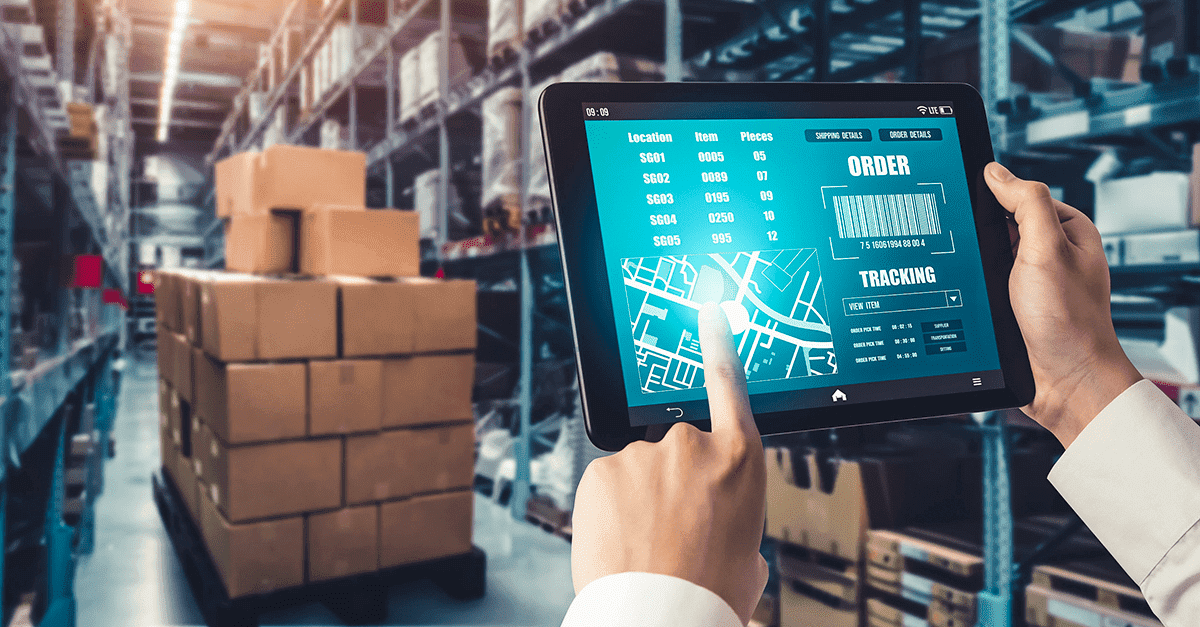
In today’s fast-paced retail environment, businesses must have real-time visibility into their inventory levels, locations, and movements to meet customer demand and ensure seamless order fulfillment.
Importance in Omnichannel Retail
Inventory management systems play a crucial role in omnichannel retail by enabling businesses to synchronize their inventory across all sales channels. In an omnichannel environment, customers expect consistent product availability and accurate stock information, regardless of whether they’re shopping online, in-store, or through other channels. By centralizing inventory data and automating processes, inventory management systems ensure that businesses can meet customer demand efficiently, minimize stockouts, and optimize inventory levels to maximize profitability.
Features and Functions
- Centralized Inventory Control: Inventory management systems provide businesses with a centralized platform to track and manage their inventory across multiple locations, warehouses, and sales channels. This real-time visibility into inventory levels and locations enables businesses to make informed decisions regarding stock allocation, replenishment, and distribution, ensuring that products are available when and where customers need them.
- Multi-Channel Inventory Sync: Omnichannel retail solutions require inventory management systems to synchronize inventory data across all sales channels, including online stores, physical stores, mobile apps, and marketplaces. By updating inventory levels in real-time and ensuring consistency across channels, businesses can prevent overselling, stockouts, and order cancellations, thereby enhancing the customer experience and minimizing revenue loss.
- Order Fulfillment Optimization: Inventory management systems optimize order fulfillment processes by automatically routing orders to the nearest or most appropriate fulfillment location based on inventory availability, proximity to the customer, and other factors. This ensures that orders are fulfilled quickly and cost-effectively, reducing shipping times, transportation costs, and fulfillment errors, while maximizing customer satisfaction and loyalty.
- Demand Forecasting and Replenishment: Inventory management systems leverage data analytics and predictive algorithms to forecast demand, anticipate stockouts, and optimize inventory replenishment. By analyzing historical sales data, seasonal trends, and market conditions, businesses can proactively adjust their inventory levels, reorder points, and safety stock levels to meet customer demand while minimizing excess inventory and carrying costs.
Some Inventory Management Systems to Take Into Account
Inventory management systems are essential components of omnichannel retail solutions, providing businesses with the tools and capabilities to manage their inventory efficiently and effectively across multiple channels. By centralizing inventory data, synchronizing inventory levels, and optimizing order fulfillment processes, these systems enable businesses to meet customer demand, minimize stockouts, and maximize profitability in today’s competitive retail landscape. Below are some of the Inventory Management Systems you can utilize if you are in need of some omnichannel retail solutions.
- TradeGecko: TradeGecko is a cloud-based inventory management platform designed for small to medium-sized businesses. It offers features such as multi-channel inventory sync, order management, and demand forecasting, enabling businesses to streamline their operations and scale their omnichannel retail operations efficiently.
- Stitch Labs: Stitch Labs is an inventory management platform that caters to growing businesses and multi-channel retailers. It offers features such as centralized inventory control, order routing, and reporting analytics, empowering businesses to manage their inventory across multiple sales channels with ease and precision.
- Fishbowl Inventory: Fishbowl Inventory is an inventory management solution that integrates with popular accounting and e-commerce platforms. It offers features such as inventory tracking, order management, and barcode scanning, enabling businesses to optimize their inventory operations and improve efficiency across all channels.
- Brightpearl: Brightpearl is an omnichannel retail management platform that combines inventory management, order processing, and financial accounting into a single integrated system. It offers features such as real-time inventory sync, automated order routing, and predictive analytics, enabling businesses to streamline their operations and deliver exceptional customer experiences across all touchpoints.
Customer Relationship Management (CRM) Systems
In the realm of omnichannel retail solutions, Customer Relationship Management (CRM) systems play a pivotal role in nurturing customer relationships, driving engagement, and facilitating personalized interactions across various touchpoints.

These systems enable businesses to centralize customer data, analyze insights, and orchestrate targeted marketing campaigns to deliver seamless and memorable experiences to their audience.
Importance in Omnichannel Retail
CRM systems are indispensable in omnichannel retail for several reasons. Firstly, they provide businesses with a holistic view of their customers’ interactions, preferences, and purchase history across multiple channels. This comprehensive understanding enables businesses to deliver personalized recommendations, tailored promotions, and relevant content that resonate with individual customers, driving engagement and loyalty. Secondly, CRM systems facilitate seamless communication and collaboration across departments, enabling sales, marketing, and customer service teams to work together cohesively to deliver exceptional customer experiences. Lastly, CRM systems empower businesses to leverage data and analytics to gain insights into customer behavior, identify trends, and optimize their omnichannel strategies for maximum impact and effectiveness.
Features and Functions
- Centralized Customer Database: CRM systems serve as a centralized repository for storing and managing customer data, including contact information, purchase history, preferences, and interactions across all touchpoints. This single source of truth enables businesses to access up-to-date customer information in real-time, ensuring consistency and accuracy in their communications and interactions.
- Segmentation and Targeting: CRM systems enable businesses to segment their customer base based on various criteria, such as demographics, purchase behavior, and engagement level. By segmenting customers into distinct groups, businesses can tailor their marketing messages, promotions, and offers to better resonate with each segment, thereby increasing the relevance and effectiveness of their marketing efforts.
- Personalization and Automation: CRM systems facilitate personalized interactions with customers by enabling businesses to automate marketing campaigns, emails, and communications based on predefined triggers and customer actions. By delivering timely and relevant messages to customers at each stage of their journey, businesses can enhance engagement, drive conversions, and foster long-term loyalty.
- Integration with Other Systems: CRM systems seamlessly integrate with other systems and platforms, such as eCommerce platforms, marketing automation tools, and customer service software, to create a unified omnichannel experience. This integration enables businesses to synchronize customer data, track interactions, and deliver consistent experiences across all channels, enhancing the overall customer journey and driving satisfaction.
Some CRM Systems to Take Into Account
CRM systems are essential components of omnichannel retail solutions, enabling businesses to build and nurture customer relationships, drive engagement, and deliver personalized experiences across all touchpoints. By centralizing customer data, segmenting and targeting audiences, automating marketing activities, and integrating with other systems, CRM systems empower businesses to optimize their omnichannel strategies and achieve sustainable growth in today’s competitive retail landscape. Below are some of the CRM you can utilize if you are in need of some omnichannel retail solutions.
- Salesforce CRM: Salesforce CRM is a cloud-based CRM platform that offers a comprehensive suite of features for managing customer relationships, sales processes, and marketing campaigns. It provides businesses with tools for lead management, opportunity tracking, and campaign automation, making it a popular choice for businesses of all sizes.
- HubSpot CRM: HubSpot CRM is a free CRM platform that offers a range of features for managing contacts, tracking interactions, and automating marketing activities. It provides businesses with tools for email marketing, lead scoring, and customer segmentation, enabling them to create personalized experiences and drive engagement.
- Zoho CRM: Zoho CRM is a cloud-based CRM platform that offers features for sales automation, marketing automation, and customer support. It provides businesses with tools for lead management, pipeline management, and social media integration, helping them streamline their sales and marketing processes and improve customer engagement.
- Microsoft Dynamics 365: Microsoft Dynamics 365 is a comprehensive suite of business applications that includes CRM functionality. It offers features for sales, marketing, customer service, and operations, enabling businesses to manage their entire customer lifecycle from prospecting to post-sales support. With its integration with other Microsoft products such as Outlook and Office 365, it provides businesses with a seamless and unified experience across all channels.
Point-of-Sale (POS) Systems
In the landscape of omnichannel retail solutions, Point-of-Sale (POS) systems serve as the linchpin that connects online and offline operations, enabling businesses to provide seamless shopping experiences to their customers.
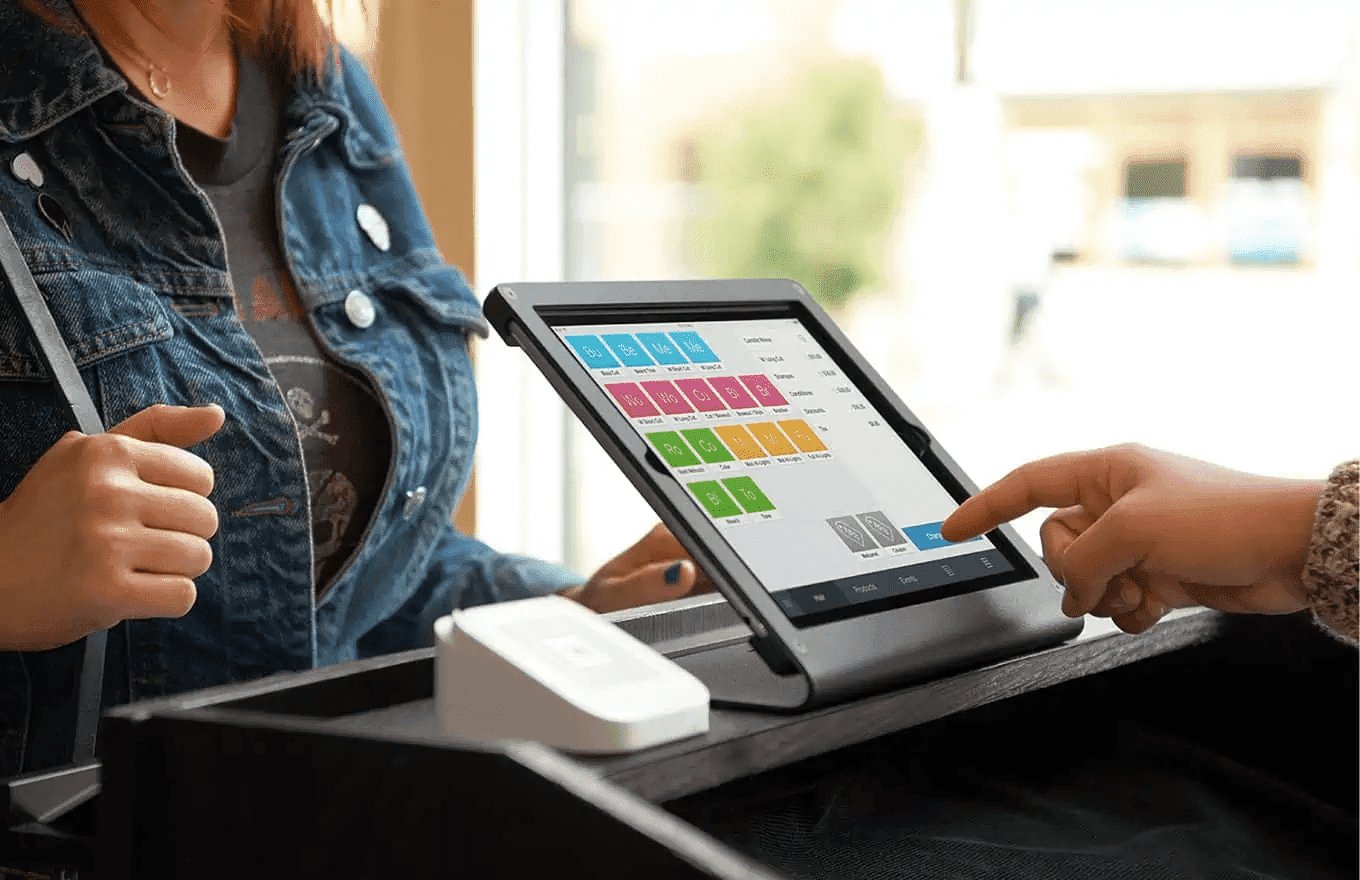
These systems are instrumental in processing transactions, managing inventory, and capturing valuable customer data, thereby facilitating efficient operations and driving customer satisfaction.
Importance in Omnichannel Retail
POS systems play a crucial role in omnichannel retail by serving as the central hub for processing transactions and managing customer interactions across various touchpoints. In today’s retail environment, where customers expect a seamless shopping experience regardless of whether they’re shopping online or in-store, POS systems enable businesses to bridge the gap between digital and physical channels. By integrating with other systems such as eCommerce platforms, inventory management systems, and customer relationship management (CRM) software, POS systems provide businesses with a holistic view of their operations and enable them to deliver consistent and personalized experiences to their customers.
Features and Functions
- Transaction Processing: At its core, a POS system is responsible for processing transactions, including sales, returns, and exchanges. These systems enable businesses to accept various payment methods, such as credit cards, debit cards, mobile wallets, and cash, thereby providing customers with flexible and convenient payment options. By streamlining the checkout process and reducing wait times, POS systems enhance the overall customer experience and drive satisfaction.
- Integration with CRM and IMS: POS systems play a critical role in inventory management by tracking product levels, updating stock counts in real-time, and generating reports on sales and inventory performance. By integrating with Inventory management systems, they can help businesses better keep track of their inventory. POS systems can also capture valuable customer data at the point of sale, including purchase history, preferences, and contact information. This data can be leveraged to personalize marketing communications, tailor promotions, and reward loyal customers. By integrating with CRM systems, POS systems enable businesses to build and nurture customer relationships, drive engagement, and increase customer lifetime value.
- Omnichannel Integration: In an omnichannel retail environment, POS systems must seamlessly integrate with other systems and platforms to provide a unified shopping experience to customers. This includes integration with eCommerce platforms, mobile apps, and loyalty programs. By synchronizing data and processes across all channels, POS systems enable businesses to deliver consistent pricing, promotions, and product information to customers regardless of how they choose to shop.
Some POS Systems to Take Into Account
POS systems are essential components of omnichannel retail solutions, enabling businesses to process transactions, manage inventory, and capture valuable customer data across multiple channels. By integrating with other systems, such as eCommerce platforms, inventory management systems, and CRM software, POS systems provide businesses with the tools and capabilities to deliver seamless and personalized shopping experiences to their customers. Below are some of the POS systems you can utilize if you are in need of some omnichannel retail solutions.
- Square Point of Sale: Square Point of Sale is a popular POS system that caters to small and medium-sized businesses. It offers features such as payment processing, inventory management, and sales reporting, all within a user-friendly interface. Square Point of Sale also integrates with other Square products, such as Square Online and Square Marketing, to provide businesses with a comprehensive omnichannel solution.
- Lightspeed Retail: Lightspeed Retail is a cloud-based POS system designed for retailers of all sizes. It offers features such as multi-store management, customer profiles, and customizable reporting, enabling businesses to streamline their operations and deliver personalized experiences to their customers. Lightspeed Retail also integrates with various eCommerce platforms, accounting software, and third-party applications to support omnichannel retailing.
- Shopify POS: Shopify POS is a POS system that seamlessly integrates with the Shopify eCommerce platform. It offers features such as inventory management, order management, and customer engagement tools, enabling businesses to manage their online and offline operations from a single dashboard. Shopify POS also supports omnichannel selling, allowing businesses to sell products in-store, online, and through social media channels.
- Vend: Vend is a cloud-based POS system that caters to retailers in various industries, including fashion, electronics, and hospitality. It offers features such as inventory management, loyalty programs, and reporting analytics, enabling businesses to optimize their operations and drive sales. Vend also integrates with other software solutions, such as Xero and QuickBooks, to provide businesses with a complete omnichannel retail solution.
Benefits of Omnichannel Retail for Businesses
In today’s highly competitive retail landscape, embracing omnichannel retail solutions has become imperative for businesses looking to stay ahead of the curve. By seamlessly integrating various sales channels and providing customers with a unified shopping experience, omnichannel retail solutions offer a host of benefits that can drive growth, enhance customer satisfaction, and foster long-term loyalty.
Let’s explore some of the key benefits of omnichannel retail for businesses.
Enhanced Customer Experience
One of the primary advantages of adopting omnichannel retail solutions lies in the ability to elevate the customer experience to unprecedented levels. In today’s interconnected world, customers seamlessly transition between various channels during their shopping journey, expecting a consistent and personalized experience regardless of where they interact with a brand.
Consider this scenario: a customer discovers a product on social media, clicks on a link that directs them to the brand’s eCommerce website, adds the item to their cart, but decides to visit a physical store to try it out before making the final purchase. In this journey, the customer expects the same level of service, product information, and convenience across all touchpoints.

Omnichannel retail solutions make this seamless experience possible by integrating data, inventory, and communication channels. Through robust technology and strategic alignment, businesses can achieve the following:
- Data Integration: Omnichannel retail solutions enable businesses to gather and synthesize data from various touchpoints, including online interactions, in-store purchases, and social media engagement. By consolidating this data into a centralized platform, businesses gain a comprehensive understanding of their customers’ preferences, behaviors, and purchasing patterns. This allows for the delivery of personalized recommendations, tailored promotions, and relevant content that resonates with individual customers.
- Inventory Management: In an omnichannel environment, inventory visibility is paramount. Omnichannel retail solutions facilitate real-time inventory tracking across all channels, ensuring that customers have access to accurate stock availability information. Whether a product is available online, in-store, or through other sales channels, customers can make informed purchasing decisions without encountering stock-outs or delays. This seamless inventory management capability enhances customer satisfaction and reduces the risk of lost sales due to inventory discrepancies.
- Communication Channels: Omnichannel retail solutions enable businesses to maintain consistent communication with customers across multiple channels. Whether through email marketing, social media messaging, live chat support, or personalized notifications, businesses can engage with customers in real-time and provide timely assistance throughout their shopping journey. This proactive approach to communication fosters a sense of trust and reliability, further enhancing the overall customer experience.
By breaking down silos between different channels and ensuring a cohesive brand experience, businesses can exceed customer expectations and foster stronger relationships that drive loyalty and advocacy. Ultimately, the ability to deliver an enhanced customer experience across all touchpoints sets businesses apart in today’s competitive landscape and lays the foundation for long-term success in the omnichannel era.
Increased Sales and Revenue
Another significant benefit of omnichannel retail solutions is the potential for increased sales and revenue. By expanding their presence across multiple channels, businesses can reach a broader audience and capture sales opportunities that would otherwise be missed. For example, a customer may discover a product on social media, research it further on the company’s website, and ultimately make a purchase at a physical store. By seamlessly connecting these touchpoints and providing customers with convenient options for browsing, buying, and receiving products, businesses can maximize their sales potential and capitalize on every interaction.

Additionally, omnichannel retail solutions enable businesses to leverage data and analytics to identify trends, optimize pricing strategies, and personalize marketing campaigns, further driving sales and revenue growth.
- Expanded Reach and Audience Targeting: Omnichannel retail solutions allow businesses to extend their reach beyond traditional boundaries. By establishing a presence across various channels such as eCommerce websites, social media platforms, mobile apps, and physical stores, businesses can connect with customers at different stages of their purchasing journey. This broadens the audience pool and enables businesses to target specific demographics, interests, and geographic locations more effectively. As a result, businesses can attract new customers who may have otherwise been inaccessible through a single-channel approach.
- Seamless Customer Journey: Omnichannel retail solutions enable businesses to create a seamless customer journey that spans online and offline touchpoints. As mentioned earlier, customers often engage with multiple channels before making a purchase decision. By seamlessly connecting these touchpoints and providing consistent experiences across channels, businesses can facilitate smoother transitions and reduce friction in the purchasing process. For example, a customer may discover a product on social media, browse additional information on the company’s website, and complete the purchase in-store. By offering convenient options for browsing, buying, and receiving products, businesses can capitalize on every interaction and maximize their sales potential.
- Data-Driven Insights and Personalization: Omnichannel retail solutions empower businesses to leverage data and analytics to gain insights into customer behavior, preferences, and trends. By tracking customer interactions across different channels, businesses can identify patterns, anticipate needs, and tailor their offerings to meet individual preferences. For example, by analyzing browsing history, purchase patterns, and social media engagement, businesses can deliver personalized product recommendations, targeted promotions, and customized marketing messages that resonate with customers on a deeper level. This personalized approach not only enhances the customer experience but also increases the likelihood of conversion and repeat purchases, driving revenue growth over time.
- Optimized Pricing and Marketing Strategies: Omnichannel retail solutions enable businesses to optimize their pricing and marketing strategies based on real-time data and insights. By monitoring market trends, competitor pricing, and customer feedback, businesses can adjust their pricing strategy dynamically to remain competitive and maximize profitability. Additionally, omnichannel retail solutions facilitate targeted marketing campaigns that reach customers at the right time, with the right message, through the right channels. By delivering relevant and timely promotions, discounts, and offers, businesses can stimulate demand, increase conversion rates, and drive incremental sales and revenue.
In conclusion, the potential for increased sales and revenue is a significant driver behind the adoption of omnichannel retail solutions. By expanding their reach, providing seamless customer experiences, leveraging data-driven insights, and optimizing pricing and marketing strategies, businesses can unlock new growth opportunities and achieve sustainable revenue growth in today’s competitive marketplace. As businesses continue to embrace omnichannel retail solutions, the potential for increased sales and revenue will remain a compelling incentive for driving innovation and investment in omnichannel strategies.
Improved Customer Loyalty
In today’s competitive marketplace, where consumers are inundated with choices and alternatives, building and maintaining customer loyalty has become more critical than ever for businesses. Customer loyalty goes beyond merely making a sale; it’s about fostering long-term relationships, driving repeat purchases, and transforming customers into brand advocates. This is where omnichannel retail solutions come into play, offering businesses powerful tools and strategies to cultivate loyalty and strengthen connections with their customer base.
Omnichannel retail solutions serve as a catalyst for building deeper connections with customers by providing seamless experiences across online and offline channels. In an omnichannel environment, customers can interact with a brand through various touchpoints, such as websites, mobile apps, social media platforms, and physical stores. By offering consistent messaging, branding, and customer service across these channels, businesses can create a cohesive and unified experience that resonates with customers regardless of how they choose to engage.

One of the key advantages of omnichannel retail solutions is the ability to facilitate seamless transitions between online and offline channels. For example, a customer may start browsing products on a company’s website, research further on their mobile device while on the go, and eventually visit a physical store to make a purchase. Omnichannel solutions ensure that the customer’s journey is uninterrupted, with consistent information, pricing, and availability across all touchpoints. This seamless integration enhances the overall customer experience and instills confidence and trust in the brand.
Furthermore, omnichannel retail solutions enable businesses to reward and incentivize customer loyalty through targeted promotions, exclusive discounts, and personalized rewards programs. By leveraging data and analytics, businesses can gain insights into customer preferences, behaviors, and purchase history, allowing them to tailor offers and incentives that resonate with individual customers. Whether it’s a birthday discount, a loyalty points program, or personalized recommendations based on past purchases, these initiatives demonstrate that the business values and appreciates its customers, fostering a sense of belonging and loyalty.
By demonstrating a deep understanding of their customers’ preferences and behaviors, businesses can cultivate a loyal customer base that continues to choose their brand over the competition. This loyalty not only translates into repeat purchases and increased customer lifetime value but also serves as a powerful driver of advocacy and word-of-mouth referrals. Satisfied and loyal customers are more likely to recommend the brand to friends and family, further expanding its reach and influence within the marketplace.

Omnichannel retail solutions play a crucial role in building and maintaining customer loyalty in today’s competitive landscape. By offering seamless experiences, rewarding loyalty, and demonstrating a commitment to understanding and meeting customer needs, businesses can cultivate strong and enduring relationships with their customer base. As businesses continue to embrace omnichannel strategies, the ability to foster loyalty and drive customer advocacy will remain a key differentiator in driving long-term success and sustainable growth.
Challenges in Implementing Omnichannel Retail Solutions
Omnichannel retail solutions have become imperative for businesses aiming to meet the evolving needs and expectations of modern consumers. However, implementing these solutions comes with its set of challenges. From data integration to inventory management and ensuring consistency in customer experiences, businesses face various hurdles on their omnichannel journey.
Let’s delve into the key challenges faced by retailers when implementing omnichannel retail solutions and explore strategies to overcome them.
Data Integration and Management
Data integration stands as one of the primary challenges in implementing omnichannel retail solutions. Retailers often operate disparate systems for online and offline channels, resulting in fragmented data silos. Integrating data from various sources, including eCommerce platforms, POS systems, CRM software, and inventory management systems, is crucial to gaining a unified view of customer interactions and transactions across channels.

To overcome this challenge, businesses should invest in robust data integration solutions that seamlessly connect disparate systems and synchronize data in real-time. Cloud-based integration platforms and middleware solutions can facilitate the exchange of data between systems, enabling retailers to gain actionable insights, personalize customer experiences, and optimize operations across channels.
Technology Infrastructure
Another significant challenge in implementing omnichannel retail solutions is building and maintaining a robust technology infrastructure capable of supporting seamless interactions across multiple channels. Retailers need to invest in scalable and flexible technology platforms that can adapt to changing market dynamics and evolving customer preferences.

To address this challenge, businesses should adopt agile and modular technology architectures that allow for easy integration of new channels, applications, and technologies. Cloud computing, microservices architecture, and API-first development can enable retailers to build flexible and scalable solutions that support omnichannel operations and future growth.
Inventory Management
Effective inventory management is essential for delivering seamless omnichannel experiences to customers. However, managing inventory across multiple channels poses significant challenges, including stock synchronization, order fulfillment, and avoiding stock-outs or overstock situations.
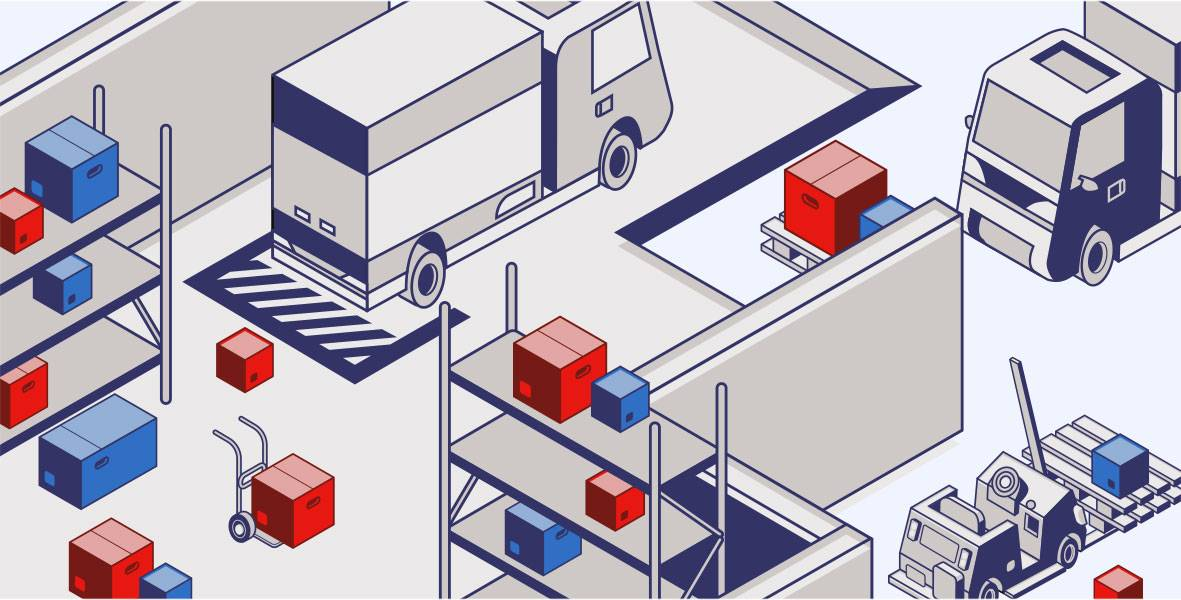
To tackle this challenge, retailers should implement advanced inventory management systems that provide real-time visibility into inventory levels across all sales channels. Automated inventory replenishment, demand forecasting, and centralized order management capabilities can help retailers optimize inventory levels, reduce carrying costs, and improve order fulfillment efficiency.
Customer Experience Consistency
Maintaining consistency in customer experiences across all touchpoints is a critical challenge for retailers implementing omnichannel solutions. Inconsistent messaging, pricing discrepancies, and disjointed experiences can lead to customer frustration and erode brand loyalty.

To ensure consistency in customer experiences, retailers should focus on aligning their branding, messaging, and pricing strategies across all channels. Implementing centralized content management systems, omnichannel pricing tools, and unified customer data platforms can help retailers deliver cohesive and personalized experiences to customers, regardless of the channel they choose to interact with.
Implementing Omnichannel Retail Solutions: Best Practices
Implementing omnichannel retail solutions has become imperative for businesses striving to meet the evolving demands of modern consumers. However, successful implementation requires careful planning, strategic investments, and a customer-centric approach.
In this part, we’ll explore the best practices for implementing omnichannel retail solutions, enabling businesses to deliver seamless and personalized experiences across all touchpoints.
Define Clear Objectives and Strategy
Before embarking on the journey of implementing omnichannel retail solutions, it’s essential to define clear objectives and develop a comprehensive strategy. Begin by identifying your target audience, understanding their preferences and behaviors, and outlining the desired outcomes of your omnichannel initiatives. Whether it’s increasing sales, improving customer satisfaction, or driving brand loyalty, align your objectives with your overall business goals.
Once you’ve defined your objectives, develop a strategic roadmap outlining the steps needed to achieve them. This roadmap should include key milestones, timelines, and resource allocations, ensuring alignment across departments and stakeholders. By setting clear objectives and developing a strategic plan, businesses can lay the foundation for successful implementation of omnichannel retail solutions.
Invest in the Right Technology
Investing in the right technology is crucial for the successful implementation of omnichannel retail solutions. Choose a robust and flexible platform that can support your omnichannel initiatives and adapt to changing market conditions. Look for features such as unified commerce capabilities, real-time inventory management, and seamless integration with existing systems.

Additionally, consider scalability, security, and ease of use when evaluating technology solutions. Whether you opt for a cloud-based platform or an on-premises solution, ensure that it aligns with your business requirements and future growth plans. By investing in the right technology, businesses can build a solid foundation for delivering seamless omnichannel experiences to customers.
Training and Education for Staff
Implementing omnichannel retail solutions requires buy-in and collaboration from employees across the organization. To ensure successful adoption, provide comprehensive training and education programs to staff at all levels. This includes frontline sales associates, customer service representatives, and back-office employees.
Training programs should cover various aspects of omnichannel retailing, including using new technology platforms, understanding customer data, and delivering consistent experiences across channels. Additionally, foster a culture of continuous learning and encourage employees to stay updated on industry trends and best practices. By investing in training and education for staff, businesses can empower employees to effectively leverage omnichannel retail solutions and drive positive outcomes for the organization.
Seamless Integration Across Channels
Achieving seamless integration across channels is essential for delivering a unified and cohesive omnichannel experience to customers. Ensure that your technology platforms are seamlessly integrated, allowing for real-time data synchronization and consistent messaging across all touchpoints.
Integrate your eCommerce platform with your POS system, CRM software, and inventory management system to ensure a seamless flow of information. Implement centralized customer data platforms to create unified customer profiles and personalize interactions across channels. Additionally, leverage APIs and middleware solutions to connect disparate systems and facilitate data exchange.

By prioritizing seamless integration across channels, businesses can eliminate silos, streamline operations, and deliver a frictionless omnichannel experience to customers.
Continuous Monitoring and Adaptation
Omnichannel retailing is an ongoing journey that requires continuous monitoring and adaptation to changing market dynamics and consumer preferences. Implement robust analytics and reporting tools to track key performance metrics, monitor customer behavior, and measure the success of your omnichannel initiatives.
Regularly review and analyze data to identify trends, opportunities, and areas for improvement. Use insights gained from data analysis to refine your omnichannel strategy, optimize marketing campaigns, and enhance the customer experience. Additionally, stay ahead of emerging technologies and industry trends, and be prepared to adapt your approach accordingly.
By embracing a culture of continuous monitoring and adaptation, businesses can stay ahead of the curve, drive innovation, and deliver exceptional omnichannel experiences that resonate with customers.
Future Trends in Omnichannel Retail Solutions
The landscape of retail is rapidly evolving, driven by advancements in technology, shifting consumer preferences, and changing market dynamics. As businesses strive to stay ahead of the curve, omnichannel retail solutions have emerged as a key strategy for delivering seamless and personalized experiences to customers across all touchpoints.
In this part, we’ll explore the future trends shaping the world of omnichannel retail solutions and how businesses can leverage these trends to drive growth and innovation.
Artificial Intelligence and Machine Learning
Artificial intelligence (AI) and machine learning (ML) are revolutionizing the way retailers engage with customers, optimize operations, and drive growth. AI-powered chatbots and virtual assistants enable businesses to provide personalized assistance and support to customers in real-time, enhancing the overall shopping experience. Machine learning algorithms analyze vast amounts of customer data to uncover insights, predict purchasing behavior, and deliver targeted recommendations, driving sales and improving customer satisfaction.
Looking ahead, AI and ML will continue to play a significant role in shaping omnichannel retail solutions. From personalized product recommendations to predictive analytics and demand forecasting, retailers will increasingly rely on AI-powered tools and technologies to deliver hyper-personalized experiences that resonate with customers and drive business outcomes.
Augmented Reality and Virtual Reality
Augmented reality (AR) and virtual reality (VR) are transforming the way customers interact with products and brands, both online and offline. AR-powered try-on experiences enable customers to visualize products in their real-world environment, enhancing confidence and reducing returns. VR-powered virtual showrooms and immersive experiences transport customers to virtual environments where they can explore products and make informed purchase decisions.
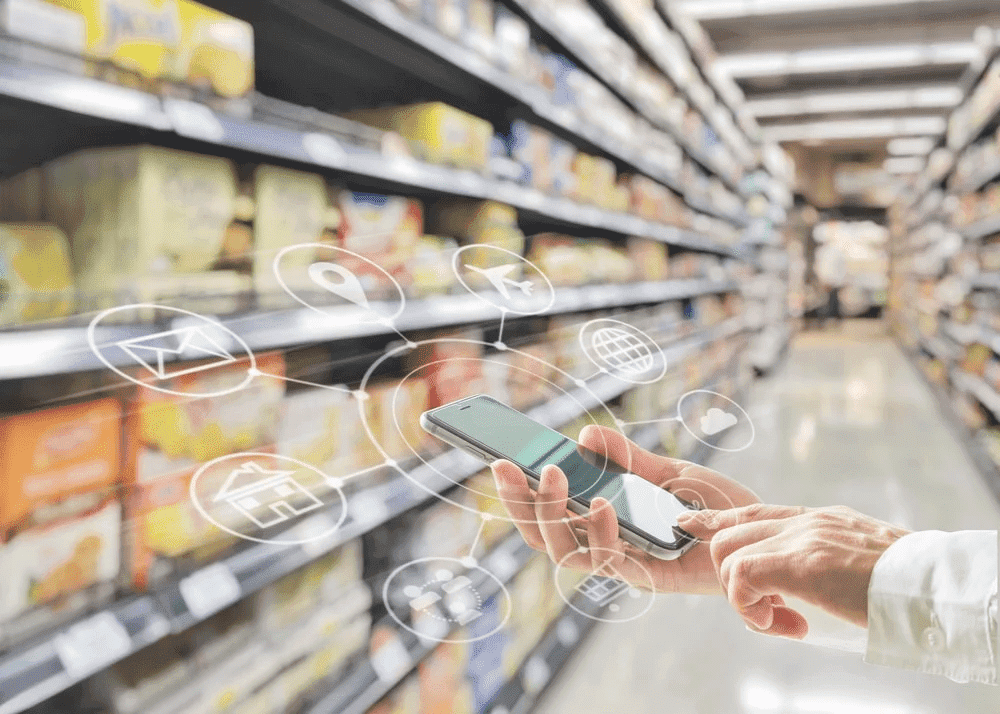
In the future, AR and VR will become integral components of omnichannel retail solutions, blurring the lines between physical and digital shopping experiences. Retailers will leverage these technologies to create engaging and immersive experiences that capture the imagination of customers and drive brand engagement. From virtual fitting rooms to interactive product demonstrations, AR and VR will revolutionize the way customers shop and interact with brands.
Social Media Presence and Social Influence
Social media has emerged as a powerful platform for retailers to connect with customers, build brand awareness, and drive sales. With the rise of influencer marketing and social commerce, retailers are leveraging social media channels to showcase products, engage with customers, and drive traffic to their online and offline stores. Social media listening tools enable retailers to monitor conversations, gather feedback, and respond to customer inquiries in real-time, enhancing the overall customer experience.

In the future, social media will continue to play a central role in omnichannel retail solutions, shaping the way brands interact with customers and drive engagement. Retailers will harness the power of social media analytics and AI-driven insights to identify trends, understand customer preferences, and tailor marketing strategies to target specific audience segments. By cultivating a strong social media presence and leveraging social influence, retailers can create meaningful connections with customers and drive loyalty and advocacy.
Ethical Questions and Sustainability
As consumers become increasingly conscious of ethical and environmental issues, sustainability will emerge as a key consideration for retailers in the future of omnichannel retail solutions. Customers are demanding transparency and accountability from brands, prompting retailers to adopt sustainable practices throughout their supply chain, from sourcing to packaging and distribution. Ethical considerations such as fair labor practices, animal welfare, and environmental impact are becoming central to brand identity and consumer decision-making.
In the future, retailers will prioritize ethical sourcing, eco-friendly packaging, and carbon-neutral operations as part of their omnichannel retail solutions. Brands will invest in technologies such as blockchain to track and trace product origins, ensuring transparency and authenticity. Retailers will also leverage storytelling and content marketing to educate customers about their sustainability efforts and foster deeper connections with environmentally conscious consumers. By embracing ethical principles and sustainability, retailers can differentiate themselves in the market and appeal to a growing segment of socially responsible consumers.
Conclusion
So far we’ve explored the multifaceted world of omnichannel retail solutions, uncovering their significance, benefits, challenges, best practices, and future trends. Throughout this comprehensive guide, we’ve delved into the intricacies of omnichannel retailing, from defining clear objectives and investing in the right technology to seamless integration across channels and continuous monitoring and adaptation.
Omnichannel retail solutions hold immense promise for businesses seeking to thrive in today’s competitive market. By embracing the principles of omnichannel retailing, investing in the right technologies, and prioritizing customer-centricity, retailers can unlock new opportunities for growth, innovation, and success. As we navigate the ever-evolving omnichannel landscape, it’s imperative for businesses to stay agile, adaptable, and forward-thinking. By staying ahead of emerging trends, embracing innovation, and prioritizing customer satisfaction, businesses can position themselves for success in the dynamic world of retail.
If you find our content helpful, please consider subscribing to our newsletter so that you won’t be missing out on any of our updates.




